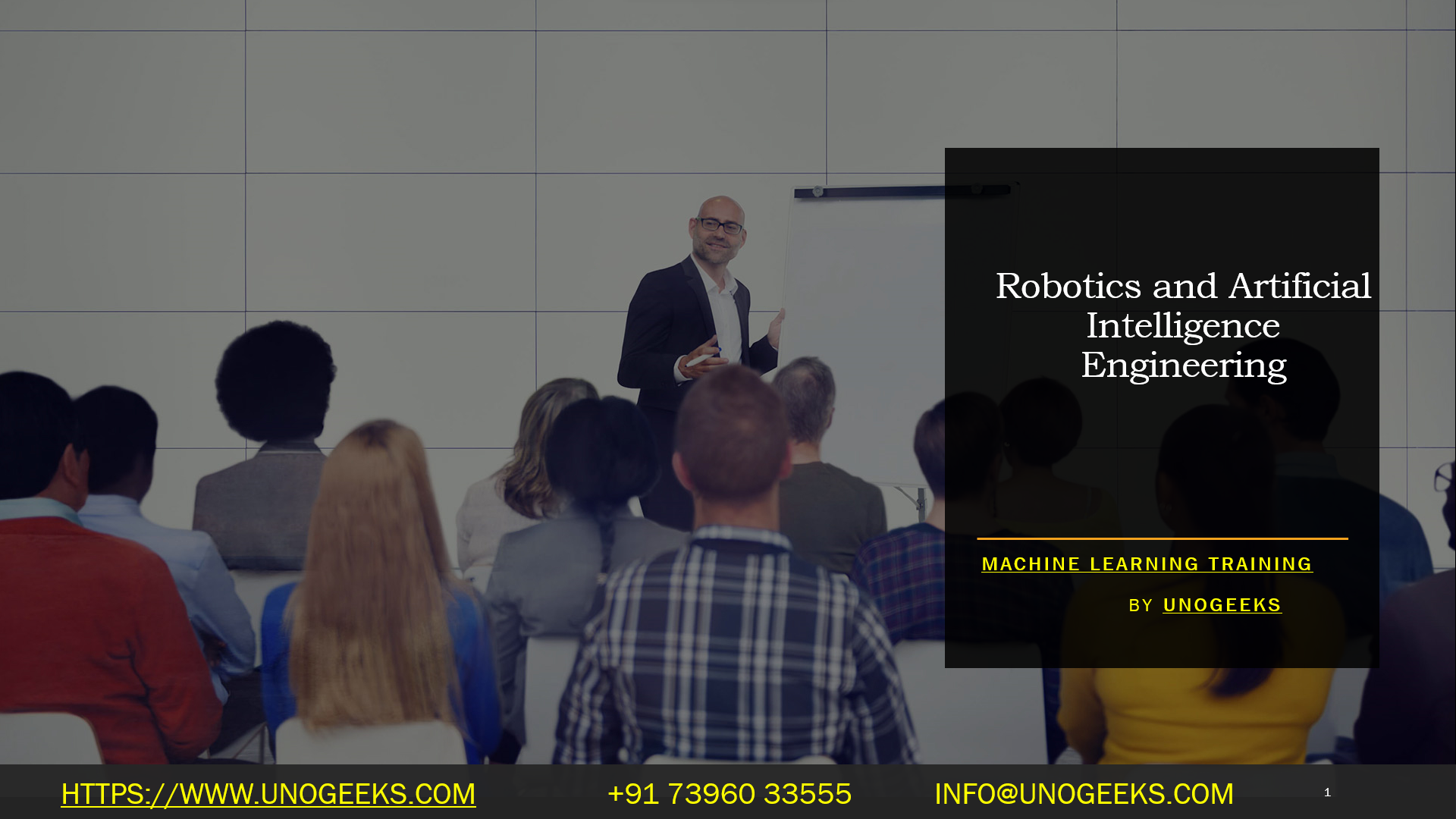Robotics and Artificial Intelligence Engineering
Robotics and Artificial Intelligence Engineering
Robotics and Artificial Intelligence (AI) Engineering are two rapidly evolving fields that increasingly intersect in exciting and innovative ways. Robotics primarily deals with the design, construction, operation, and use of robots, while AI involves creating algorithms and systems that can perform tasks which typically require human intelligence. When combined, they lead to the development of intelligent robots that can perform complex tasks autonomously or semi-autonomously. Here’s an overview of the integration of robotics and AI:
Key Areas in Robotics and AI Engineering
- Autonomous Robots:
- Development of robots that can perform tasks without human intervention, using AI for decision-making and problem-solving.
- Machine Learning in Robotics:
- Implementing machine learning algorithms to enable robots to learn from experience, adapt to new situations, and improve their performance over time.
- Computer Vision:
- Applying AI to enable robots to interpret and interact with their environment through visual processing.
- Natural Language Processing (NLP):
- Equipping robots with the ability to understand and respond to human language, facilitating more natural human-robot interactions.
- Sensor Fusion:
- Combining data from multiple sensors (like cameras, lidar, radar) to improve a robot’s understanding and interaction with its environment.
- Motion Planning and Control:
- Using AI to optimize path planning and movement control, allowing robots to navigate complex environments.
- Human-Robot Interaction (HRI):
- Focusing on making interactions between humans and robots more intuitive and efficient.
Applications
- Manufacturing and Industrial Automation:
- Robots equipped with AI are used for tasks like assembly, packing, and quality control.
- Healthcare:
- From surgical robots to assistive devices for patients and the elderly.
- Agriculture:
- Autonomous robots for tasks like planting, weeding, and harvesting.
- Search and Rescue:
- Robots capable of navigating dangerous environments for search and rescue missions.
- Service Industry:
- AI-powered robots in retail, hospitality, and customer service.
- Exploration:
- Space exploration and underwater research robots.
Challenges and Future Directions
- Safety and Reliability:
- Ensuring robots are safe to interact with and reliable in various environments.
- Ethical and Social Implications:
- Addressing concerns about job displacement, privacy, and ethical use of robots.
- Advanced AI Integration:
- Integrating more advanced AI to handle complex tasks and decision-making.
- Improved Human-Robot Interaction:
- Making interactions more natural and intuitive.
- Energy Efficiency and Sustainability:
- Developing energy-efficient and environmentally friendly robotic solutions.
Education and Skills Required
- Educational Background:
- Degrees in robotics, computer science, electrical engineering, mechanical engineering, or related fields.
- Technical Skills:
- Programming (Python, C++, etc.), machine learning, computer vision, control systems, electronics, and mechanical design.
- Soft Skills:
- Problem-solving, creativity, teamwork, and communication.
Machine Learning Training Demo Day 1
Conclusion:
Unogeeks is the No.1 Training Institute for Machine Learning. Anyone Disagree? Please drop in a comment
Please check our Machine Learning Training Details here Machine Learning Training
You can check out our other latest blogs on Machine Learning in this Machine Learning Blogs

———————————-
For Training inquiries:
Call/Whatsapp: +91 73960 33555
Mail us at: info@unogeeks.com
Our Website ➜ https://unogeeks.com
Follow us:
Instagram: https://www.instagram.com/unogeeks
Facebook: https://www.facebook.com/UnogeeksSoftwareTrainingInstitute
Twitter: https://twitter.com/unogeeks
